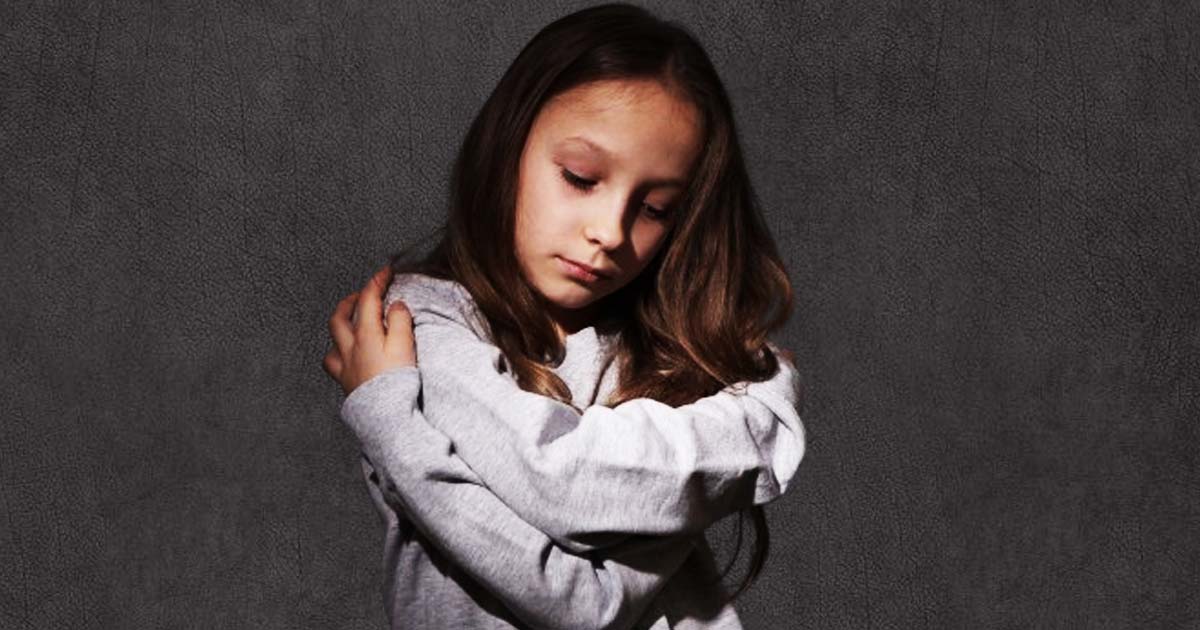In today’s busy world, finding time to spend with our kids can be tough. But it’s really important! This article is all about why giving our kids special one on one time is important.
When we spend time with our kids just one-on-one, it helps them feel happy and loved. It also helps them grow up to be smart and friendly. In this article, we’ll talk about why this time is so important and how we can make it happen, even when we’re busy.
So, let’s find out why spending time alone with our kids is a big deal and how we can do it more often. It’s all about making our kids feel special and loved!
Your Child Needs More Attention: Why Do You Need To Give It?
Giving a child attention is crucial for their emotional, cognitive, and social development.
Here’s why your child needs more attention:
1. Emotional Development:
Attention from caregivers provides children with a profound sense of security and belonging, fostering a foundation of trust and confidence in their relationships.
This emotional security serves as a cornerstone for healthy emotional development, enabling children to navigate the complexities of their feelings and interpersonal connections with resilience and understanding.
Read More: 10 Effective Ways to Develop Emotional Intelligence in Children
2. Social Skills:
When caregivers interact with children and show them their undivided attention, it helps cultivate social skills. These skills include communication, empathy, and cooperation. They are the building blocks for future interactions with peers and authority figures.
By developing these skills early on children will be able to navigate through different social situations gracefully.
3. Self-Esteem:
Attention from caregivers plays a big role in nurturing self-esteem in children. One on one time is vital that children receive a lot of positive attention, praise, and encouragement from their parents or guardians.
This builds a deep-seated belief in themselves knowing they can do anything they put their minds to.
4. Behavioral Development:
Another great thing about attention is how powerful it is when shaping behavior in children. With positive reinforcement this can provide guidance for negative actions as well as rewarding good ones! When children are acknowledged and rewarded for behaving properly they are more likely to repeat those behaviors again.
5. Cognitive Development:
Meaningful interaction with parents stimulates cognitive development which provides so many opportunities for language acquisition, problem-solving, and critical thinking! Children’s brains grow at an intense rate when they engage in conversations or play pretend games with their caregivers.
6. Attachment:
A secure attachment between child and caregiver serves as a protective factor against stress! Having a strong emotional connection allows for the child to trust their caregiver even more than before which will benefit them both long term.
7. Regulation of Emotions:
I’m sure we all know that kids have strong emotions – always crying or being upset over little things right? Paying attention to them during these times and supporting them actually helps regulate their emotions better than if you ignored them or told them “they’re overreacting.”
Offering compassionate support is crucial during these times because it’ll help build resilience within the child while also providing lifelong coping strategies that will help them out down the road!
Overall, when your child needs more attention you need to make sure that they are getting their heart full of your love. Overall, giving attention to children is essential for their overall growth and well-being. It lays the groundwork for their future success and happiness.
Read More: 10 Key Benefits of Play in Early Childhood Development
10 Signs Of One On One Time For Children
1. Seeking Attention:
If your child is constantly trying to get your attention and interrupting your conversations or activities, they might be feeling a little neglected and in need of some one on one time.
Of course, this could just be a normal craving for attention that comes with the territory of being a kid. Or it could indicate they feel overlooked and are looking for reassurance that you’re there.
Parents tend to notice this behavior when they’re busy with other things.
“Hey mom/dad can we play something together? We never spend any time together anymore.”
It’s best to respond like this:
“I see you’re trying to get my attention, let’s spend some quality time together. You wanna play your favorite game or should we read a book?”
2. Acting Out:
A lot of times kids will act out or display disruptive behavior as an outlet for how they feel when they long for more attention from their parents. They might also think that negative is better than nothing at all. This behavior could be anything from tantrums and disobedience, to aggression.
It’s always good to plan activities with them and spend more quality time!
“You seem pretty antsy today, want me to help you channel it in a way that’ll make you happy? We could go on a bike ride or hangout outside.”
3. Expressing Emotions:
When children need extra attention they express their emotions in over the top ways sometimes because they want comfort and reassurance from their caregivers.
So when your child is expressing whatever concern it may be- Listen!
“I see that you’re really hurt by what happened earlier, let’s talk about it and do something fun together afterward! Want to draw?”
4. Clamming Up:
Some kiddos will become more quiet when they start needing more company form others because feeling disconnected from their parents makes them lonely sometimes.
“I don’t feel like talking much right now, can we just be with each other?”
The typical response:
“You seem a bit quiet today, wanna hang out and talk? We could play a board game or maybe even do a puzzle.”
5. Being Extra Affectionate:
If your child is requesting more hugs and cuddles from you than normal it’s literally because they need reassurance that you’re there for them.
Your child might say something like: “Can we please have a hug fest before bed? Your hugs make me feel safe.”
You should respond with:
“Looks like you’re in need of some extra love today. Let’s snuggle and read your favorite story.”
6. Expressing Frustration:
Children may express frustration or dissatisfaction when they feel neglected or overlooked. They might vocalize their feelings or exhibit behavior that communicates their need for attention.
“I feel like you’re always busy. Can we have some time just for us? I miss doing things together.”
“I understand you’re frustrated. Let’s find some time to hang out together and do something you enjoy. What would you like to do?”
7. Being Uncooperative:
When children resist following instructions or cooperating with tasks, it could be a signal that they’re seeking attention or connection.
They might feel disconnected and act out as a way to gain your focus. That is not always throwing a tantrum it may be your child needs more attention.
“I don’t want to do my homework. Can we play a game first? I’d love to spend time with you before I tackle my schoolwork.”
You can give one on one time encouragement like:
“I noticed you’re not really into this task. Want to take a break and do something together? We could play a game or do a fun craft.”
8. Creating Opportunities:
Children might create opportunities for one on one time by asking for help with homework or engaging in activities that involve your presence.
Scholastics and academics can create huge stresses on your child causing them to act out. You need to understand this cue and say something like:
“I see you need help with your homework. Let’s work on it together. It’ll be more fun when we do it as a team.”
9. Expressing Longing:
Your child may express longing for past experiences or reminisce about times spent together. They might verbalize their desire for more one on one time.
Remember to express yourself as well, you are not taking an interview! Little words of comfort can go longer than any other gesture!
“I miss those times too. Let’s create new memories together. What would you like to do today?”
10. Simply Asking:
Sometimes, children straightforwardly ask for your attention or time, expressing their desire to spend quality time with you.
When your child says: “Can we spend some time together, just you and me? I’d love to have your undivided attention for a while.”
You can do something along the lines of: “Sure thing! Let’s hang out together. What would you like to do?”
Remember, every child is unique, so it’s essential to pay attention to their cues and preferences. Taking the time to engage in meaningful one on one interactions not only strengthens your bond but also fosters your child’s emotional well-being and sense of security.
Read More: Parentification Meaning and Its Alarming Impact! 8 Ways It’s Secretly Harming Our Kids
A Word From Mind Family
As parents, it’s easy to get caught up in the hustle and bustle of daily life, but it’s important to remember the profound impact that our attention can have on our children.
Taking the time to connect with them one on one not only strengthens our bond but also nurtures their emotional, cognitive, and social development.
By recognizing the signs that your child needs more attention and responding with patience, understanding, and genuine engagement, you can create meaningful moments that will shape their future well-being and happiness.
Remember, you’re not just raising a child; you’re nurturing a thriving, resilient individual who deserves all the attention and love you can offer.
Frequently Asked Questions (FAQs)
1. How can I find time for one on one interactions with my child?
Prioritizing one-on-one time with your child is essential for their well-being and development. Even in a hectic schedule, carving out small pockets of dedicated time can make a significant difference.
2. What are the benefits of spending one on one time with my child?
Engaging in regular one-on-one interactions with your child fosters a strong bond and promotes their emotional, cognitive, and social development. By giving your child undivided attention, you show them that they are valued and loved, which boosts their self-esteem and confidence.
3. What activities are best for one on one bonding with my child?
The best activities for one-on-one bonding are those that allow for meaningful interactions and shared experiences. This could include playing games, reading together, going for walks, or engaging in creative activities like drawing or crafting.












Leave a Reply